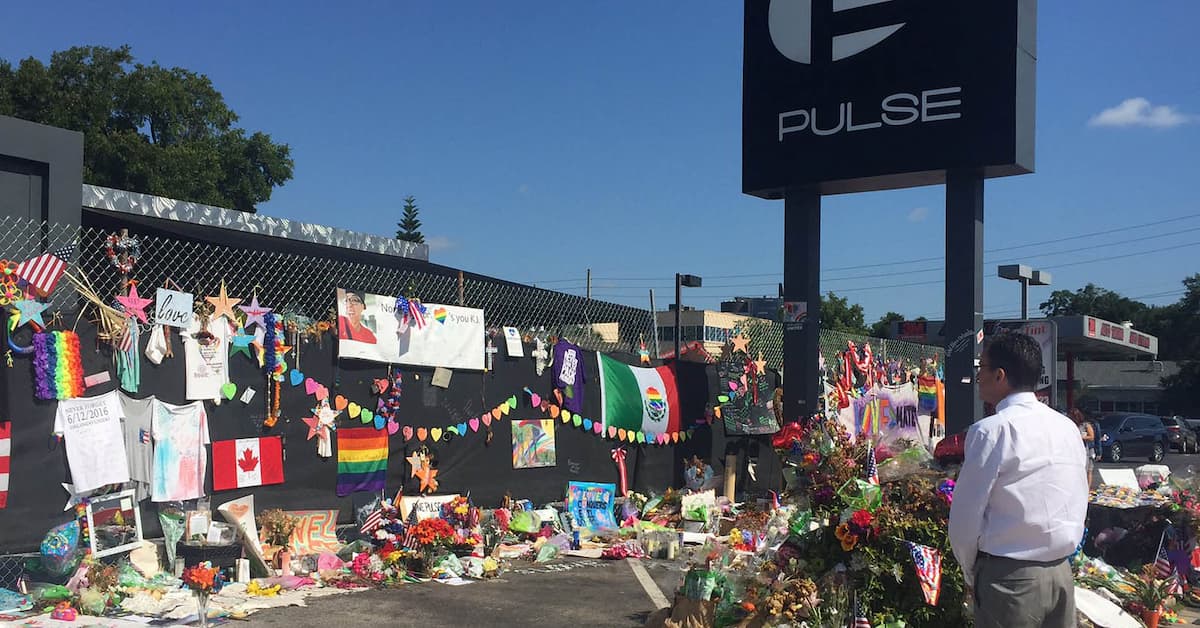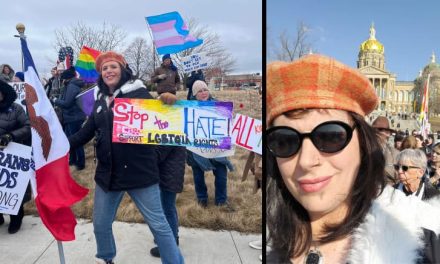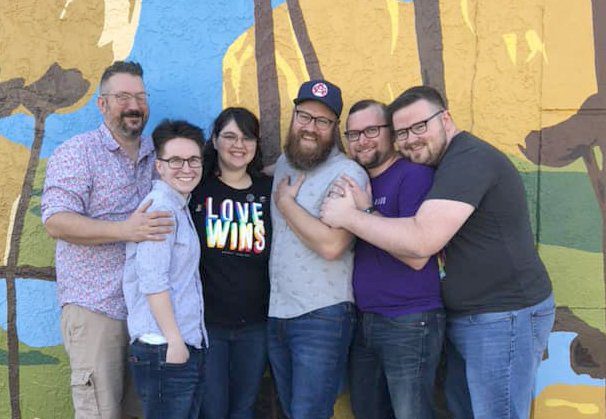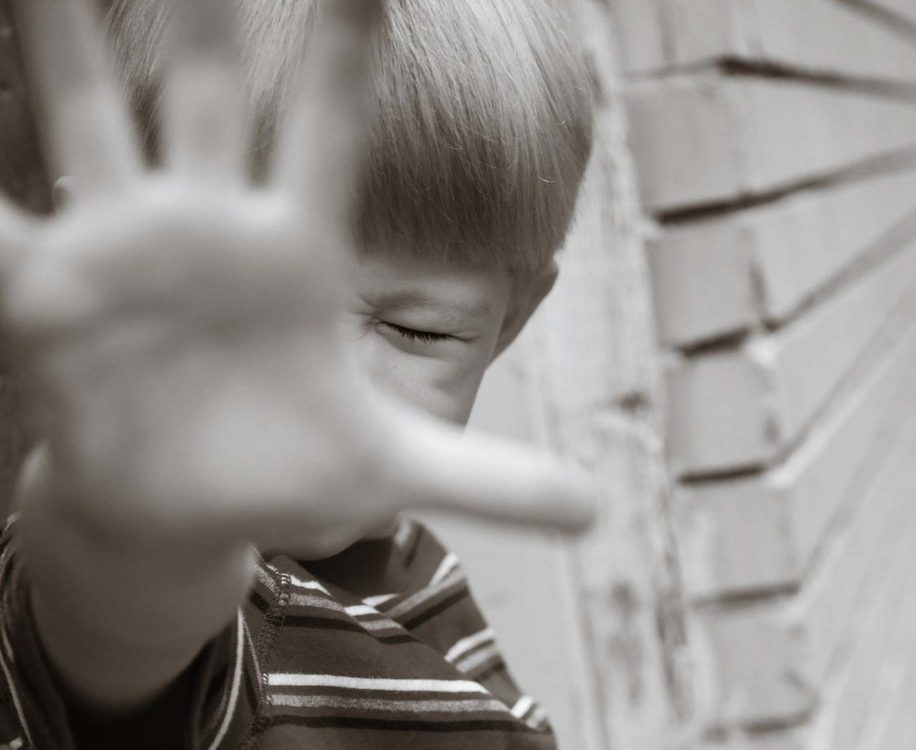“Even life, it’s like funeral practice,” wrote the beloved nonbinary poet Andrea Gibson in their piece, “Orlando.” “Half of us already dead to our families before we die, half of us on our knees trying to crawl into the family photo.”
These brutal words are the most pivotal part of Gibson’s amazing tribute to Pulse Nightclub victims. Yet, they seem to be the least-quoted, I find in the five years since Pulse.
When it comes to Pulse, we’re all aware of the location (Orlando, Fl.), number of victims (49 killed, another 50 wounded), that almost every victim was brown-skinned (it was Latin Night at the bar), and the hateful religious motivations of the shooter (a Muslim, his relatives said he had become enraged at the slight of two men kissing).
To some, Pulse is also a central part of the fight for greater gun control. I’d like to ask you to put that essential debate aside for a moment.
Listening to Gibson’s “Orlando” repeatedly on June 12 has become an annual ritual for me since I discovered the recording in 2017. Gibson addresses something that made this shooting different than all others: blatant and purposeful existential condemnation.
We are the only people for whom it was and still is, acceptable among many to tell us, ”You are a freak of nature. You are a sin. You beget sin. Your existence should literally be ended because it never should have happened in the first place.” The condemnation and erasure that still happens of LGBTQ people is all-encompassing, and beyond “you are less than,” into “you literally should not exist.”
And while racism, misogyny and all the other isms cannot be justified spiritually anymore, rejection and diminution of LGBTQ people still is justified by many, who disregard subtleties like translation and context.
That’s why defying this condemnation is so beyond whether you have a legal “right” to be here, do that, be protected from such and such. It’s a struggle so deep down, only an Andrea Gibson could capture it in “Orlando,” presenting Pulse Nightclub and places like it as “the only place they ever thought was safe, the only place they ever thought they did not have to hide, the only place they were ever wanted because of who they loved, and how they loved.”
Early that morning, most of the victims died immediately, on the dance floor. But at least a dozen died after hiding in the club’s bathroom stalls where the shooter held them hostage and fired indiscriminately.
Many people don’t realize that at least five Pulse victims died after the shooter’s outbursts, while clustering on the floor of those stalls, with police waiting for three hours outside, fearing the shooter had explosives. At least 11 of the victims died at hospitals; who knows which of those could have been saved if they’d received medical care sooner?
Many of us may have missed the fact that a security guard for the club was eventually sued, after word emerged he had allowed the gunman to enter the club, then leave the club, then return later with his killing tools. That 31 officers also were sued, accused of violating the rights of victims who were treated more like criminals when they ran frantically out of the club that morning.
As the true experience of Pulse victims eventually emerged in the months after the shooting, for a time I could not step over-empathizing with them. Part of that stemmed from being an LGBTQ person myself who lived within 2.5 hours of Pulse at the time of the shooting.
But moreso, I could not stop thinking about the victims’ final minutes — hours for some. I could not stop imagining the crises of their souls they might have faced as they died, confronting one last time their very existence, and the fear that had been planted in so many of us exposed to religion-based homophobia: would I be punished forever in the after-life, simply for who I am?
You can likely relate to this, if you’re LGBTQ+ and experienced any level of religion-based homophobia or transphobia. You definitely cannot, if you’re not LGBTQ. Gibson somehow manages to capture the boundless depth and despair of alienation felt by LGBTQ people, in their tribute to those that died June 12, 2016.
Like the Chauvin guilty verdict is a tiny salve on the wounds inflicted by George Floyd’s death, aftermath of Pulse has brought some salve. Investigations revealed police properly followed what was thought at the time to be best practices and saved many with creative measures, but also could have and should have handled Pulse differently and prevented more from dying.
Thankfully, some changes grew out of Pulse: almost all officers nationwide are now equipped with active shooter kits that include vests and helmets. Officers are trained to go on the offense immediately and not hold back, resulting in heroic moves like the security guard at the Sooper Foods in Denver who is credited with giving his own life and preventing even more lives from being lost.
But we still have laws, conventions and conversations that marginalize LGBTQ people as defective and existentially condemned. We still have churches practicing their own form of conversion therapy, outside of the reach of the law. We still have the hate that precedes the firing of the gun.
So don’t let Pulse be just about gun policy.
Close your eyes and listen to Andrea Gibson and Mary Lambert: “I can’t change, even if I tried. Even if I wanted to.”
Let yourself connect with the Pulse victims not just over their final minutes and hours, but throughout their lifetimes. Let yourself get close to what it feels like to be existentially condemned, to live in a world where many people still think you are a freak, a defect, a mistake that doesn’t deserve to exist.
Recommit to standing against that condemnation. To never stand by silently if you see another experiencing it, even in the form of only verbal bullets.
As much as debating gun policy, that may be one of the best ways to honor the Pulse victims — today and every day.
Christine Hawes is editor of The Real MainStream. and a longtime freelance writer, communications specialist, activist and consultant.
Contact her at chris@therealmainstream.com
(cover photo credit: former Gov. Dannel Malloy, Flickr)






